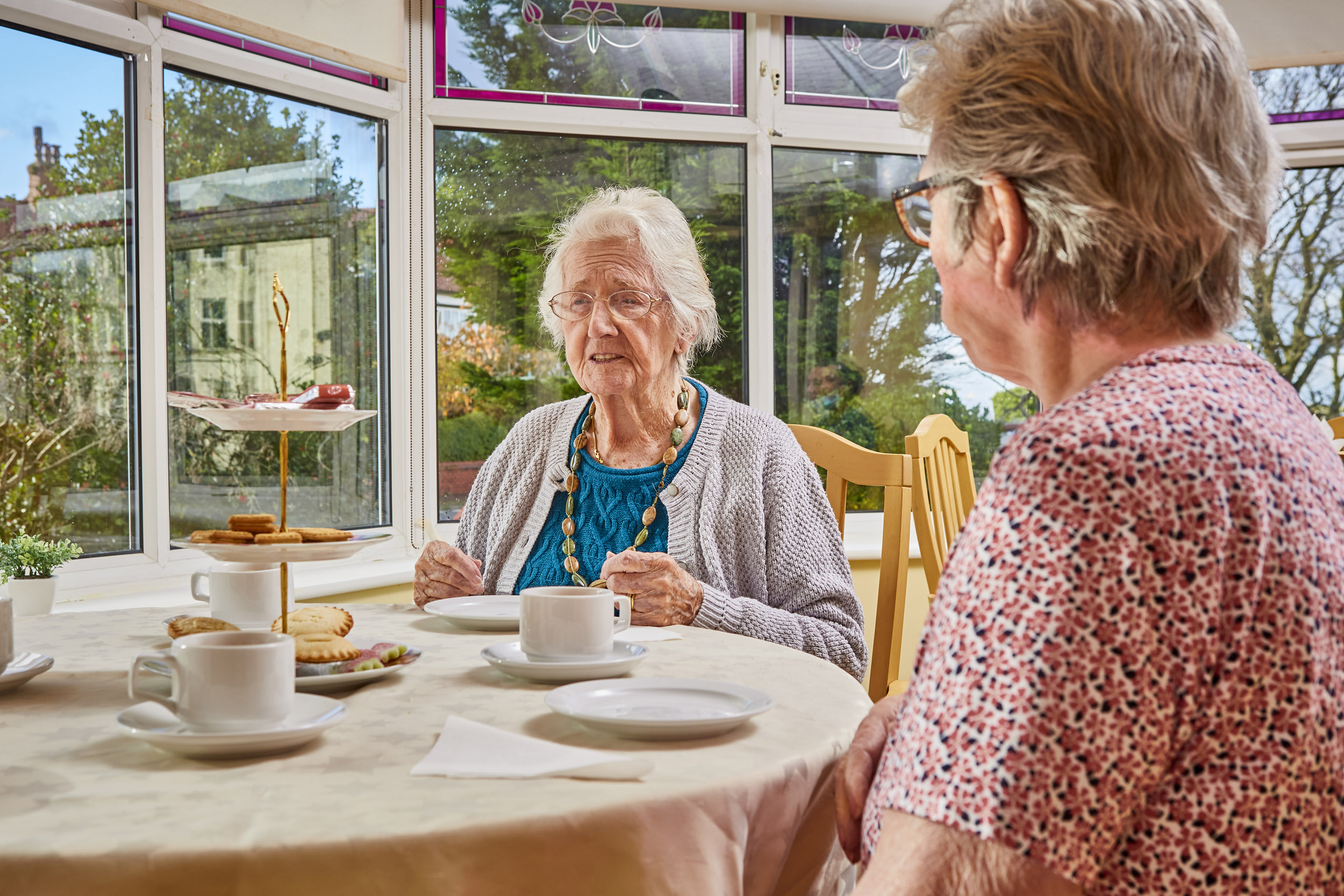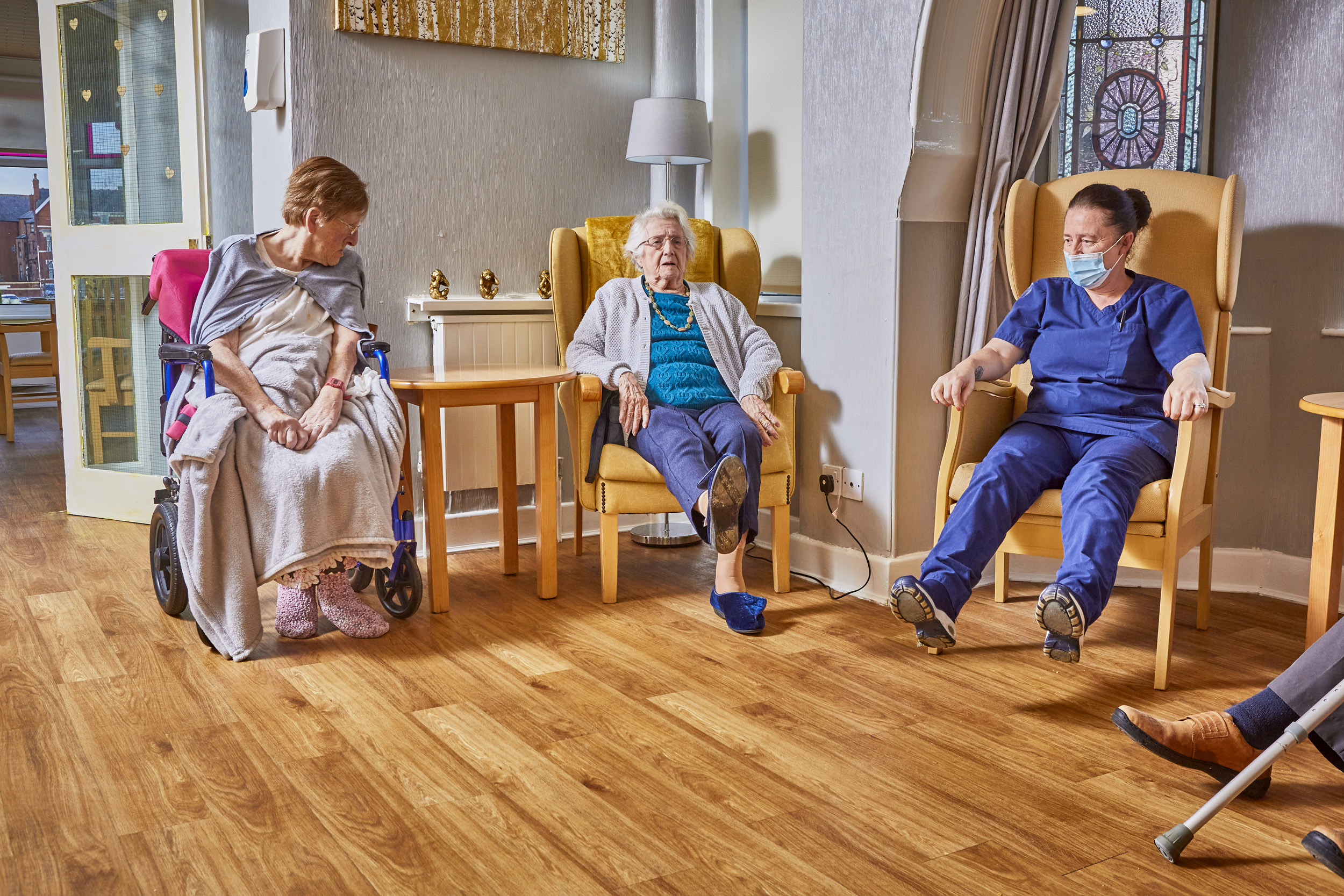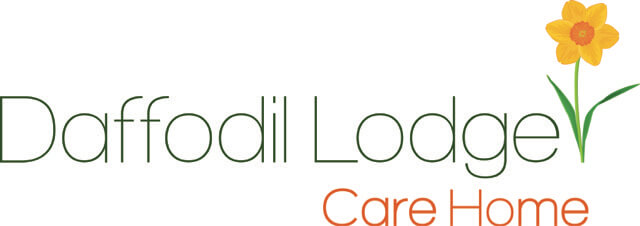Visiting Protocol
Visits between residents and their visitors must operate fully in line with the latest infection prevention and control guidance including provisions relating to the use of designated areas for visits and the use of social distancing practices, good hand hygiene, and the use of PPE for visitors and residents.
Individual Face to Face Visits from 15th March
From 8th March 2021 the government is allowing a single visitor to visit residents in care homes. Residents will be able to hold hands with their visitor. The government has not yet given any clear guidance to Care Homes on what is and isn’t acceptable. Therefore, we are asking for your patience and understanding and allowing us 1 extra week to get our homes ready for safe visiting.
We are developing individual visiting plans for each resident to assist with the assessment of risk and the details around which types of visits are most beneficial to our residents.
Designated Indoor visitors must;
- Have an LFT at the home prior to indoor visiting taking place. You will need to arrive 30 minutes before your visiting time slot for this test to be completed.
- Wear full PPE in accordance with the home’s policy, this may mean gloves, aprons, masks. You will be required to have bare arms from the elbow down.
- Comply with infection control procedures once in the home and only use the designated facilities as explained by the home on arrival.
Visits will need to be booked in advance for a specific day, time and length of visit, to enable visiting to be re-established within the setting. Please be advised, you cannot block book the same time slot for every week, we need to be fair and offer the slots to all residents families.
Booking Visits
To book a visit, please telephone the home (Marina 01704 533184, Daffodil 01704 533836) and speak to the senior on shift who will be able to check the diary and time slot availability for you. The available time slots will be 11:00, 14:00 and 16:00. Visits can only last for 30 minutes after which our team will then fully sanitise the area ready for the next visit.
Visitors must check in with the care provider on the day prior to their visit, just in case the situation in the care setting has changed.
Our ‘Responsible Visitor Code’ sets out a range of responsibilities that visitors must abide by prior to and during any visit.
When you contact us, we will discuss with potential visitors the best way to get to and from our home. Wherever possible, visitors should try to walk or travel by car and avoid public transport when visiting the home.
The Responsible Visitor Code states that visitors must:
- book visits in advance for a specific day, time and length of visit
- check in with the care provider on the day prior to their visit, to ensure the situation in the service has not changed
- be free of any COVID-19 symptoms for at least 10 days prior to the visit, as per Government guidance
- not be unwell on the day of their visits
- not be self-isolating as a result of advice from NHS Test and trace
- provide the necessary information required by the provider at the visits (e.g. honest response to screening requirements about COVID-19 risk factors, compliance with NHS Test and Trace arrangements)
- comply with the infection prevention and control measures, including a temperature test, mandatory hand hygiene, the use of PPE as required and social distancing requirements, remaining in the designated visiting area
- ensure that any gifts brought to give to the individual they are visiting can be sanitised, in line with relevant infection prevention and control (IPC) guidance.
Supported visits
Some visitors themselves will need support – such as a sighted guide – in order to visit a care home resident. Please mention this when making your booking.
As previously stated, the approach to enabling visitors has to be based on the circumstances of the individual home (including both residents and staff), the individual needs of the residents within that setting, and the external COVID-19 environment around that care setting. Personalised risk assessment is key, and it is the responsibility of the care provider to make that assessment.
We have implement individual visiting plans that contain the relevant visiting options and the associated risks in relation to visiting.


Essential Family Carers (EFC)
Many family members and friends of care home residents provide essential day-to-day support to help maintain their physical and mental wellbeing. That may include help with eating, drinking, cleaning, or keeping in touch with others.
Where it is safe to do so, (following risk assessment) we have introduced an Essential Family Carers visiting scheme which, when in line with Government and the local Director of Public Health guidance, can enable EFC support to be reintroduced.
The definition of an Essential Family Carer is as follows;
“A resident’s family member or friend whose care for a resident is an essential element of maintaining their mental or physical health. Without this input a resident is likely to experience significant distress or continued distress. Although we have used the word Family, we recognise that you may be a resident’s friend and not a family member. Also, we acknowledge that you may not see yourself as a ‘carer’ but as a partner or a supporter of your relative.”
As part of rolling this scheme out we will consider:
- Can the task be carried out by a care worker, rather than an EFC?
- What are the residents’ preferences?
- Does the resident have specific needs/characteristics that mean they reply heavily on an EFC to provide support or advocacy (e.g. cultural, religious, gender or sexuality issues)?
- Is the resident unable to maintain relationships through other arrangements, such as outdoor visits or through technology?
- What is the impact on the resident of the lack of regular contact with the EFC?
If an EFC is identified, we require that EFCs must:
- have a negative COVID-19 test within the last week prior to a visit (with the appropriate paperwork to confirm this)
- confirm that they are willing to comply with the homes infection control policy
- allow the care home to retain contact details, in case they need to share these with the NHS Test and Trace scheme
- agree any limits to length and frequency of visits with the care home.
Mental capacity
Government guidance states that:
“Providers must consider the rights of residents who may lack the relevant mental capacity needed to make particular decisions and, where appropriate, their advocates or those with power of attorney should be consulted. For example, some people with dementia and learning disabilities may lack the relevant capacity to decide whether or not to consent to a provider’s visiting policy. These residents will fall under the empowering framework of the Mental Capacity Act 2005 (MCA) and are protected by its safeguards.
When considering their visiting policy, staff will need to consider the legal, decision-making framework offered by the MCA, individually for each of these residents. The government has published advice on caring for residents without relevant mental capacity, and on the MCA and Deprivation of Liberty Safeguards (DoLS), during the pandemic.
Regard should be given to the ethical framework for adult social care, and the wellbeing duty in section 1 of the Care Act 2014. Where the individual has a social worker or other professional involved, they can support the provider in helping consider the risk assessment.”
Our individual visiting plans are drawn up in consultation with residents, any LPA or authorised person in peoples best interests.
Ability to suspend visiting
In the event of any suspected or actual outbreak of COVID-19, or a suspected or known case of COVID-19 within a home, visitor restrictions may need to be immediately implemented which suspend some of these enabling approaches and will include exclusion of any non–essential visitors. This will be implemented in a transparent manner with open and clear communication to residents and relevant family members.
Effective communication
We will ensure that we communicate effectively with relatives and other key stakeholders in an open and transparent way about their approach to visiting, in line with the recent joint statement: Keeping Connected: transparency.
Learning as the situation develops
Care providers will be able to review their visiting policies as they learn from their implementation of opening up to visitors and as the wider COVID-19 situation and guidance/ advice evolves.
Suggestions for future consideration from consultees of family representatives on this protocol include: exploring ways in which children may be enabled to visit safely and how a potential ‘staff support volunteer role’ may be possible to enable those relatives who used to visit regularly and spend a lot of time at the care setting and assist with meals/ other activities to return in the longer term.
Rights and responsibilities
This protocol includes a set of rights and responsibilities for both care providers and visitors which put the welfare and wellbeing of residents/ people receiving care at the heart of the approach to developing our visiting policies.
| RIGHTS | |
| Care providers have the right to: | Visitors have the right to: |
| Mitigate risk of infection by refusing entry to their home to anyone, or requesting that a person leave the premises, for any justifiable reason consistent with this protocol. | Access care homes in accordance with the entry requirements set out in the visiting policy of the care setting. |
| Consider increased visitor restrictions when an outbreak (including non-COVID-19) occurs within the home, or declared outbreak / clusters have occurred within the home’s local area or if there are other extraordinary circumstances that require it, and usage of such circumstances will be closely monitored. | Be notified by timely and regular updates and information about what is happening in the home, in relation to visiting and local COVID-19 prevalence and transmission risk. Be provided and supported with additional ways to connect such as video conference or telephone calls in addition to a limited number of in-person visits |
| RESPONSIBILITIES | |
| Care providers have a responsibility to: | Visitors have a responsibility to: |
| Follow Government and local Director of Public Health guidance, including guidance on visitors. | Follow Government and local Director of Public Health guidance, including guidance on visitors. |
|
Provide a clear policy and information on how they will facilitate visitors, using a dynamic risk-based approach, and make this publicly available as needed. Visiting areas will be fully cleaned and sanitised in between each visit. |
Follow the home’s visiting policy and Visitor Code, including booking in advance. Report any infection control risks if they identify any. |
| Provide clear information about how the visit will work and the infection control measures that must be followed. | Not to visit when unwell or displaying any signs of a cold/flu, respiratory or COVID-19 symptoms. |
| Appropriately support staff in order to facilitate visits including written processes and procedures. | Respond truthfully to COVID-19 screening questions asked by staff and to sign the checklist / visitor. |
| Treat all visitors with respect and courtesy, and to provide clear instructions about the visiting policy | Treat all staff with respect and courtesy, and to follow their instructions on the visitor policy. |
| Proactive communication with residents and families where an outbreak occurs, and the impact on the visiting policy. | Follow visiting requirements including, infection and prevention control measures such as washing hands, use of visiting windows, remaining in designated areas and social distancing requirements – as directed by the care home staff, and provision of contact details to support NHS Test and Trace – and that failure to do so may affect the future ability to visit. |
Get in Touch
If you want to find out more about our story, our staff or our home feel free to get in touch with our team.

